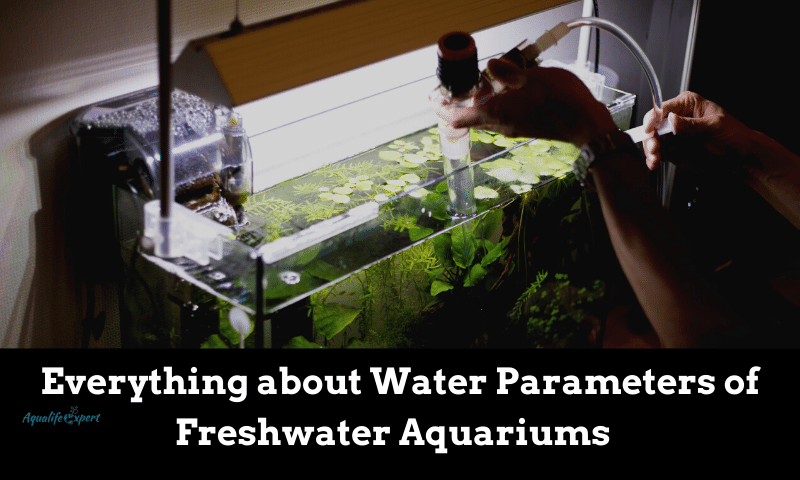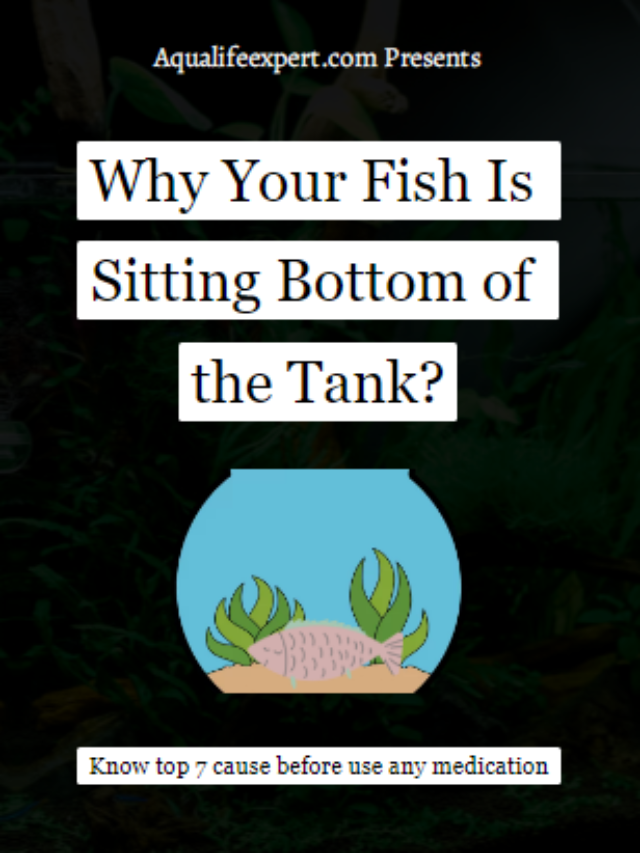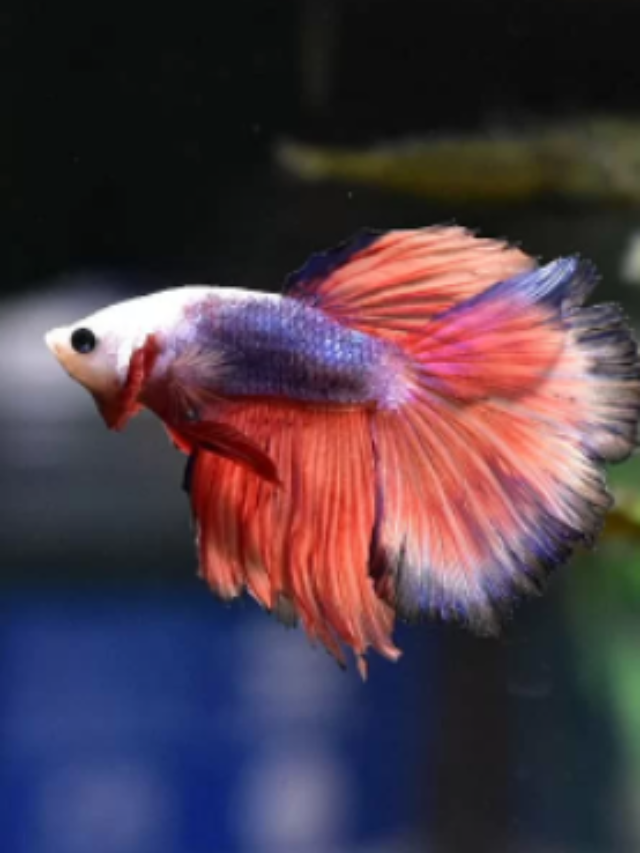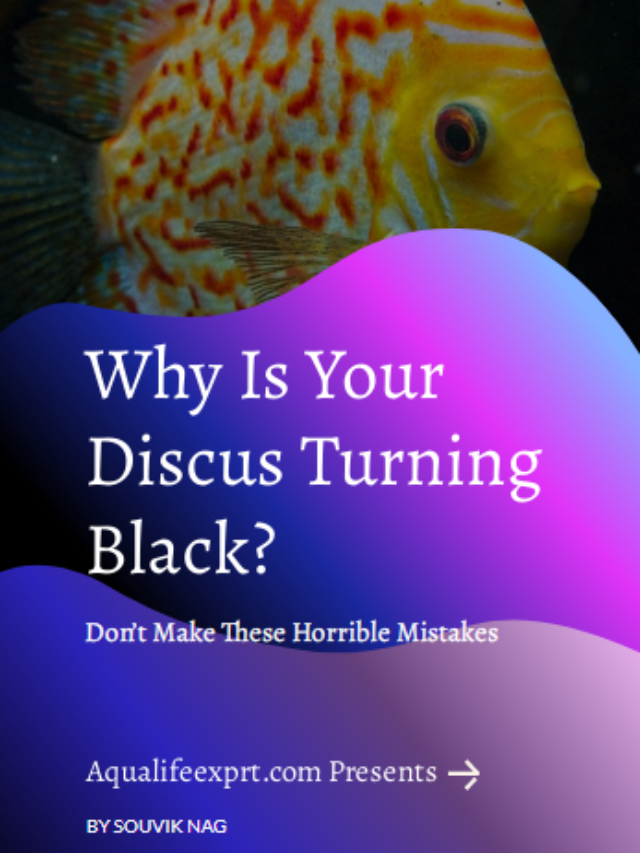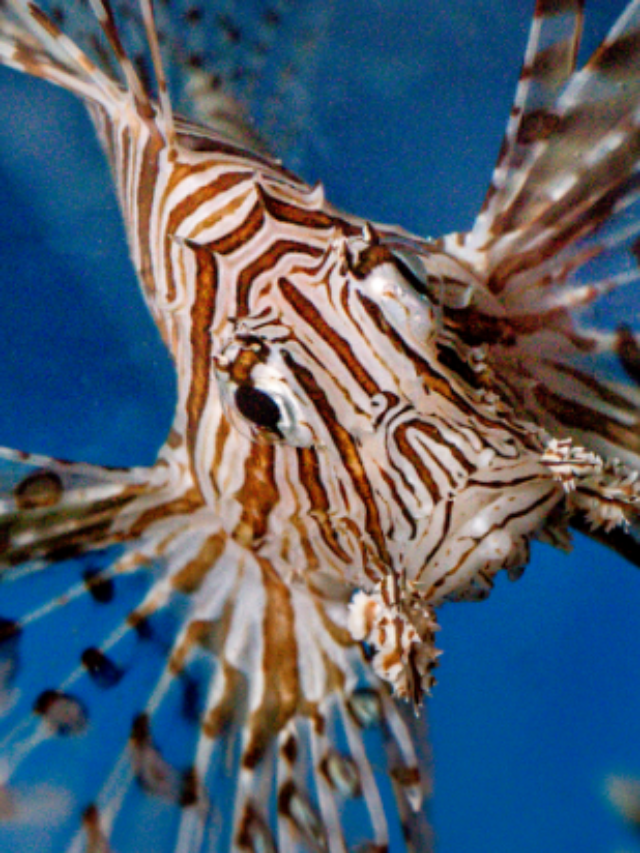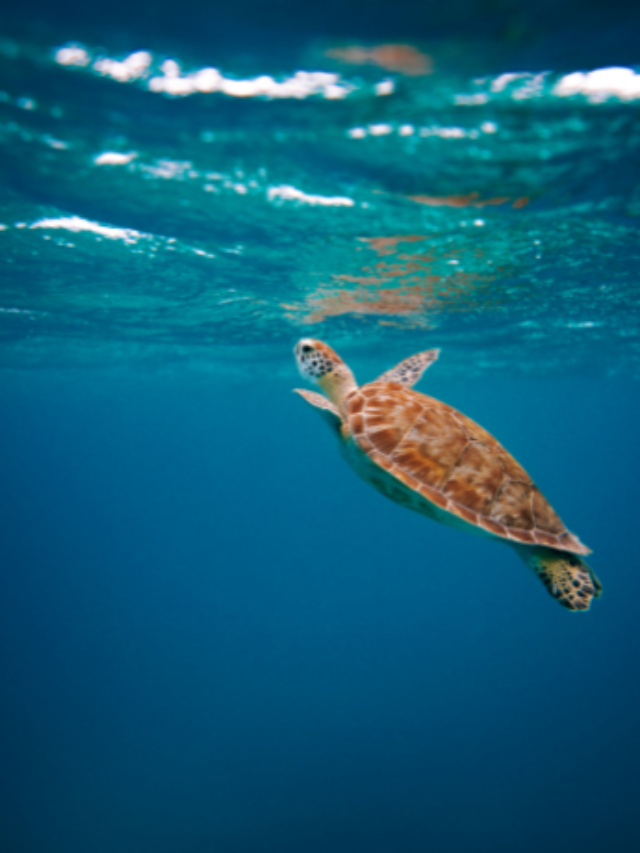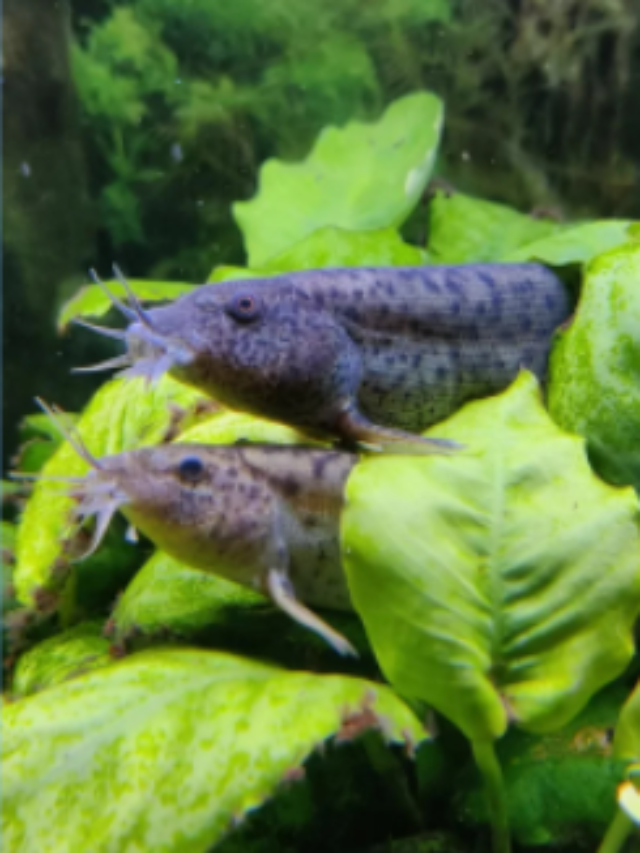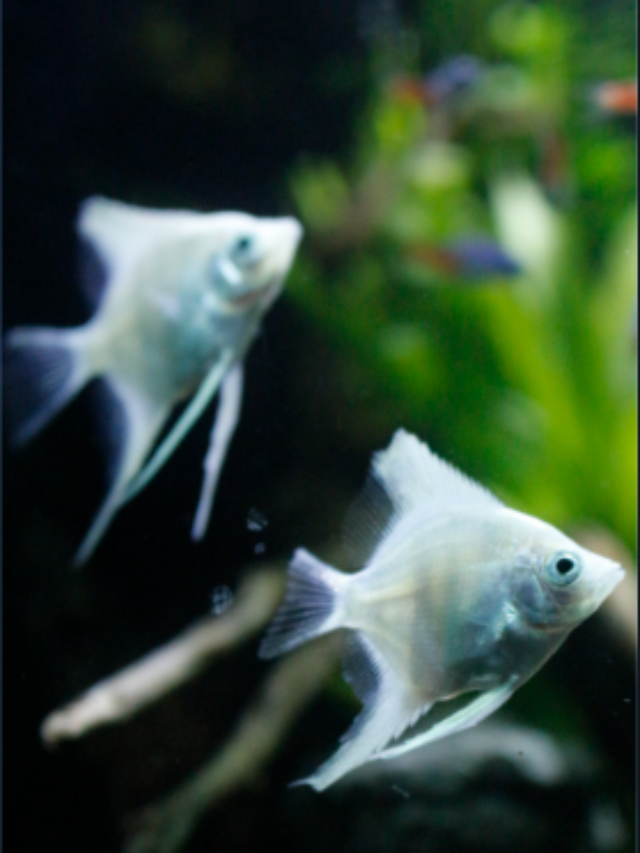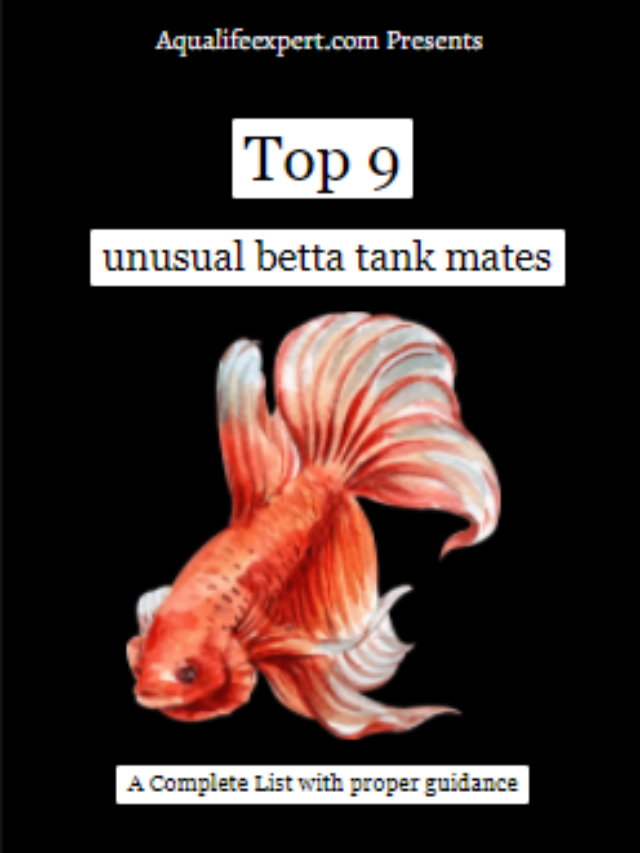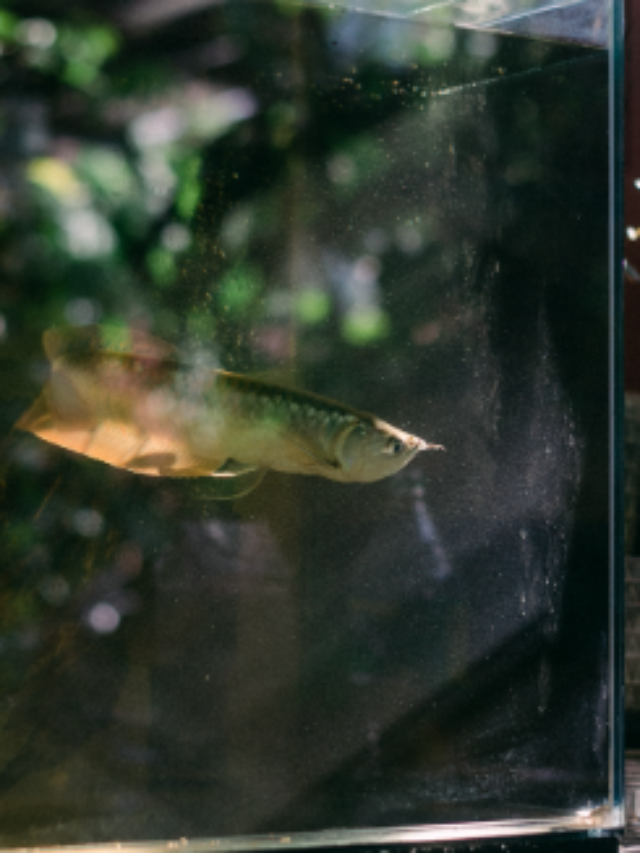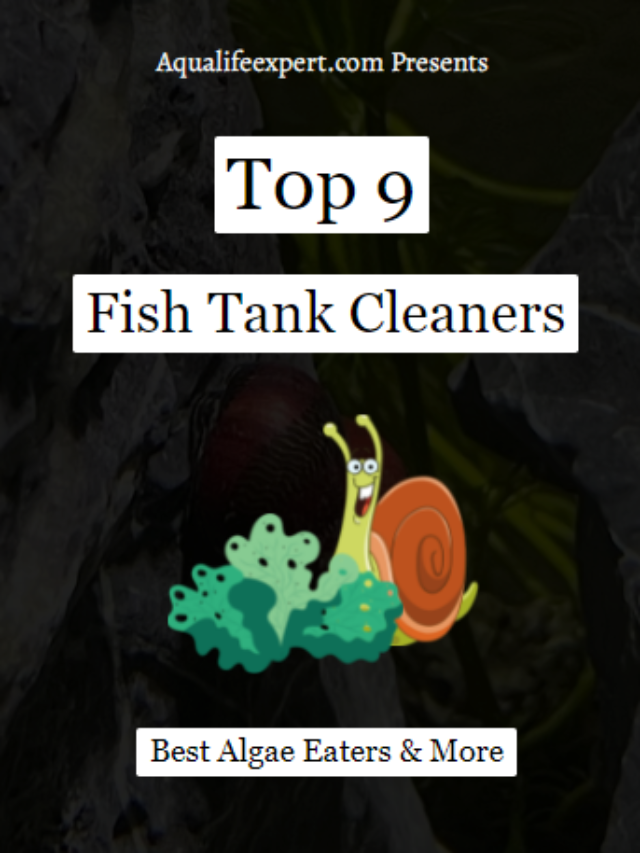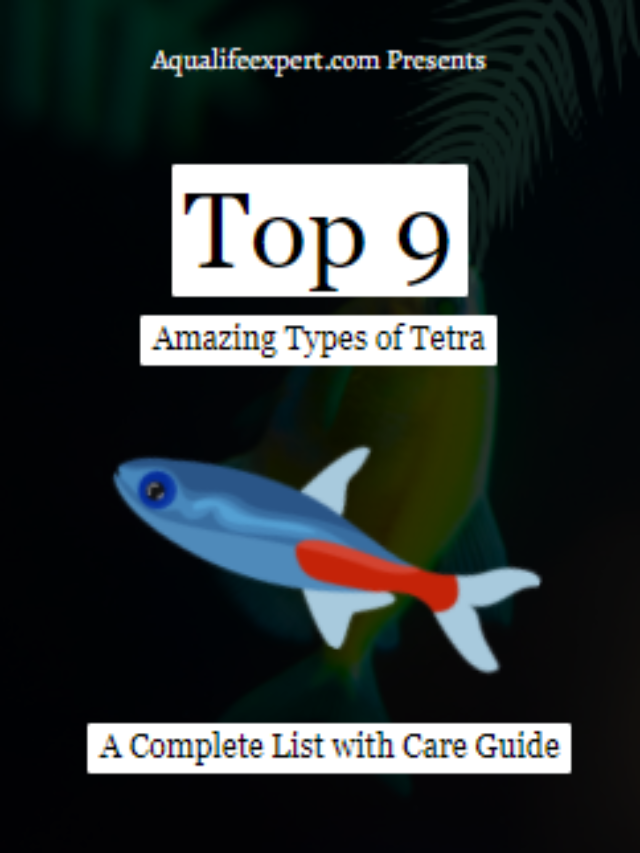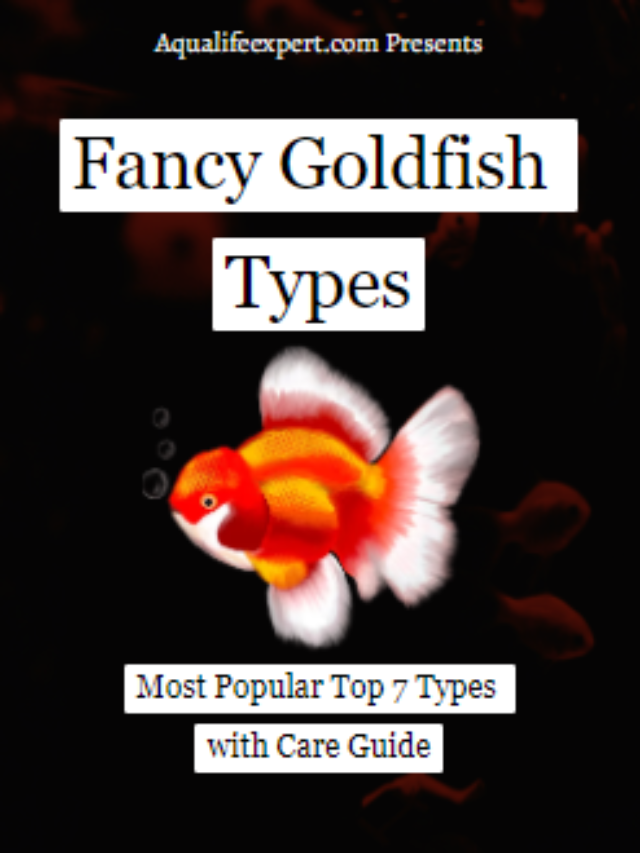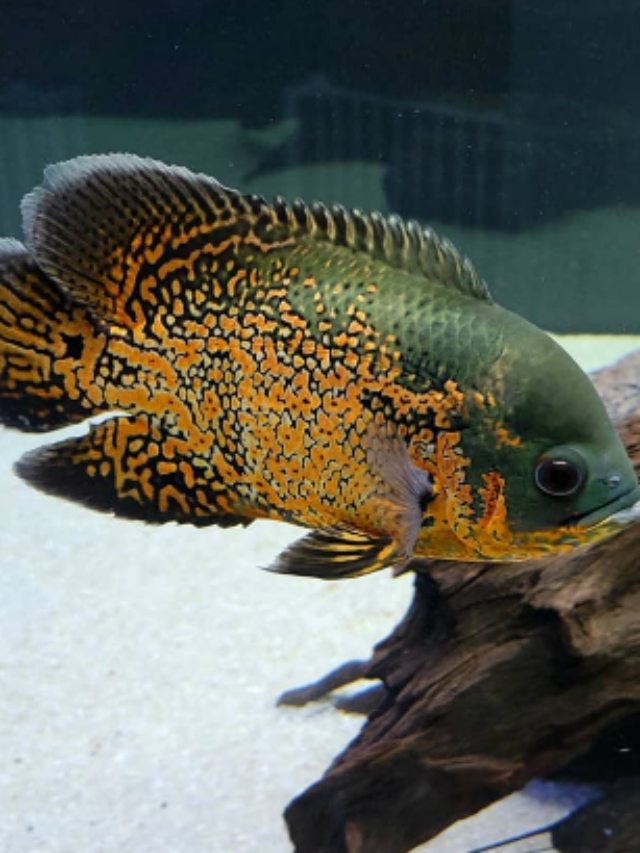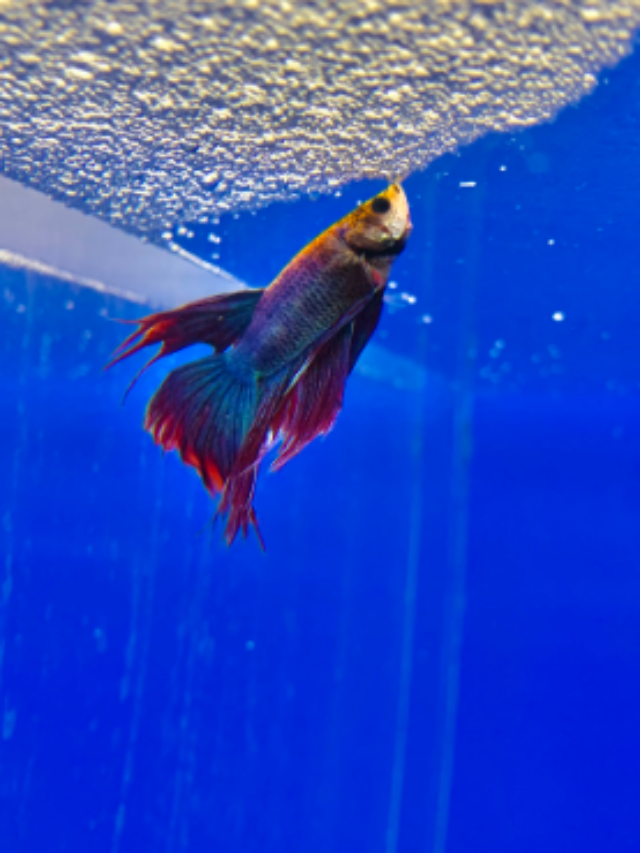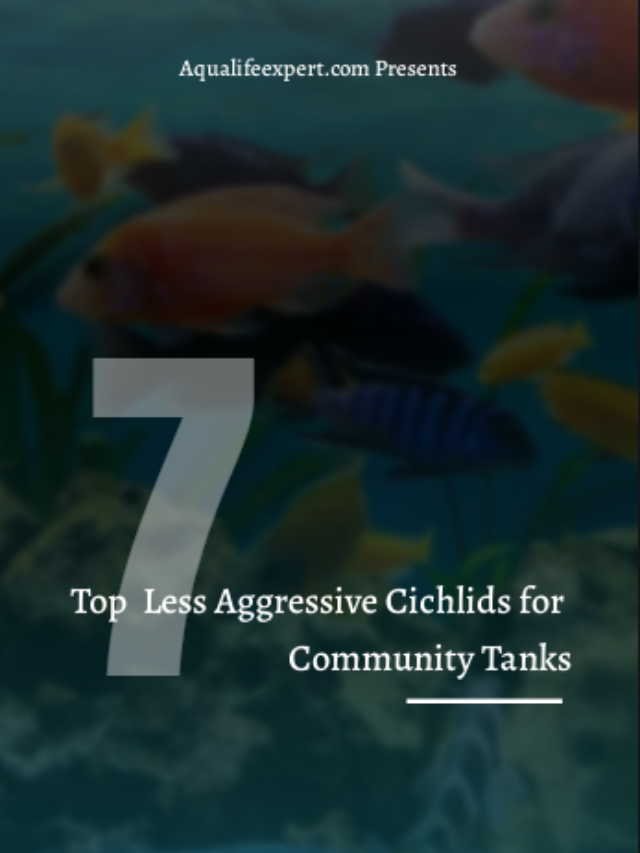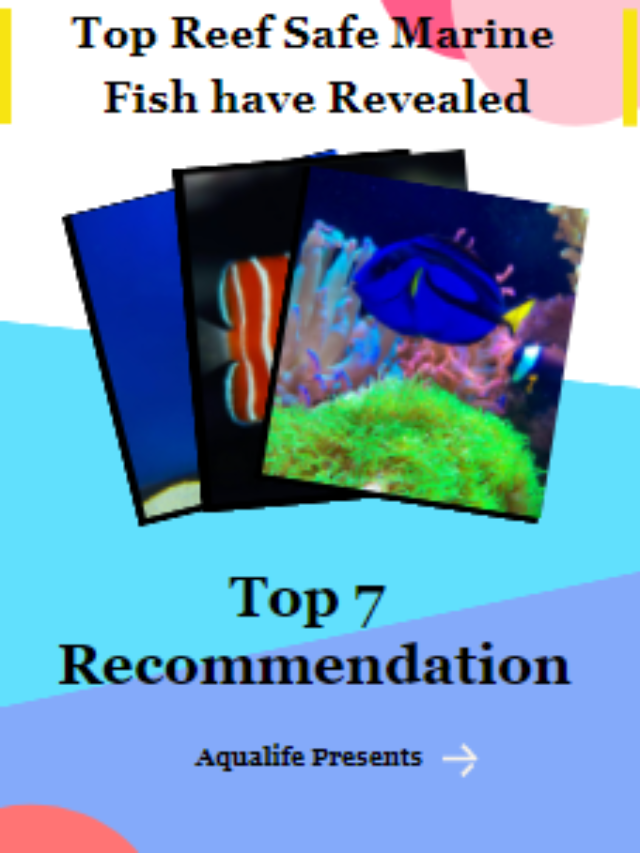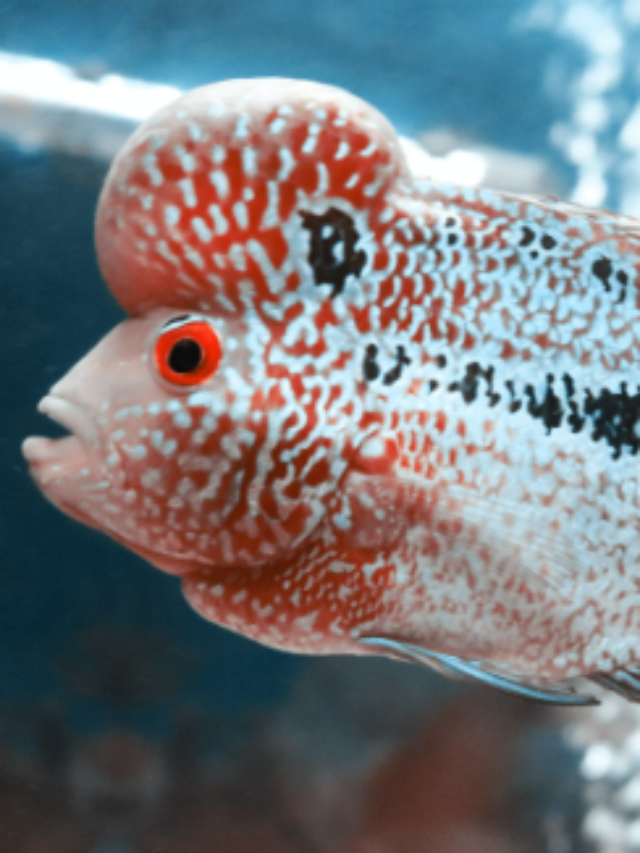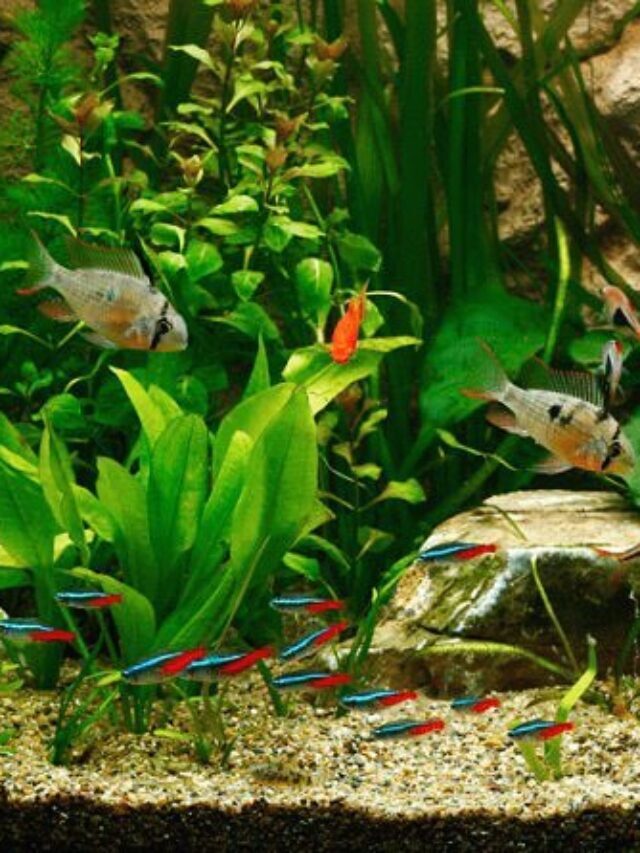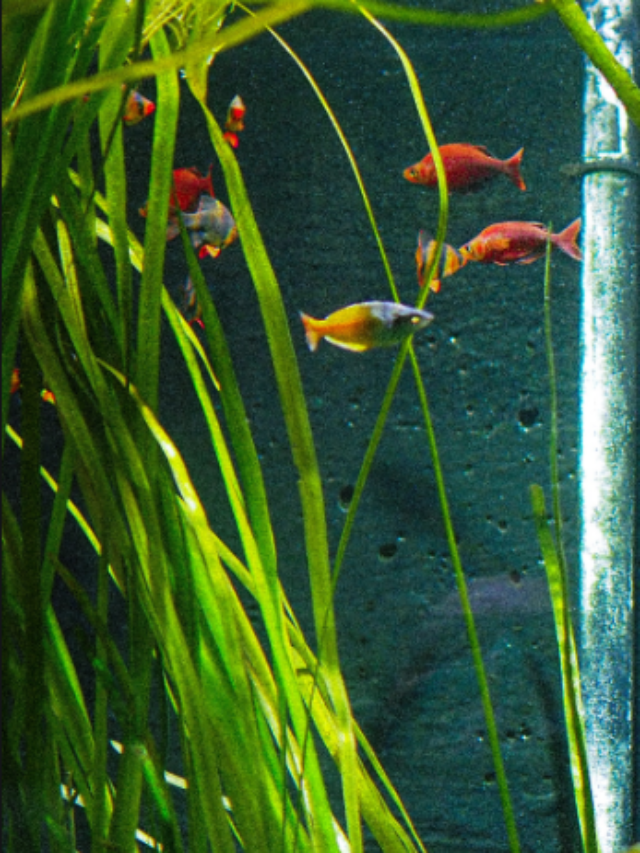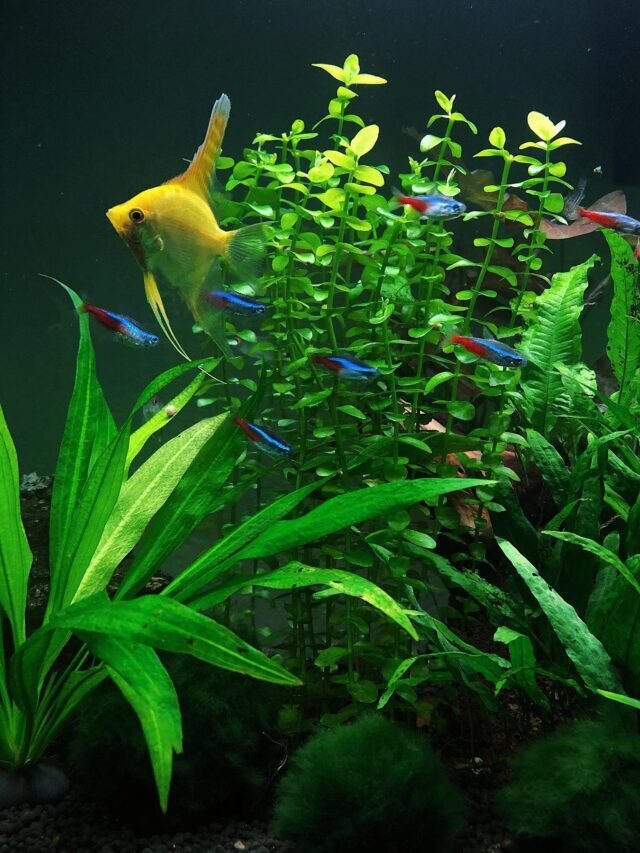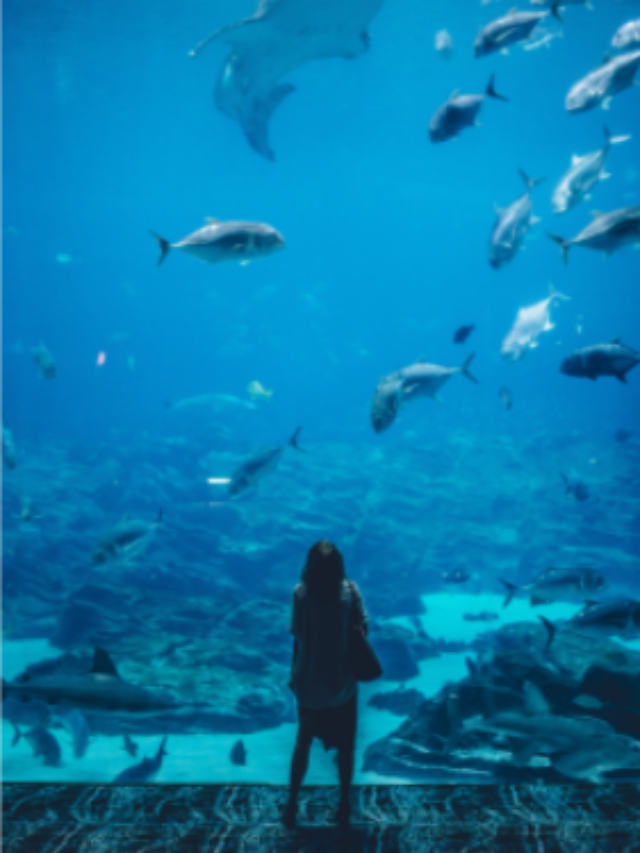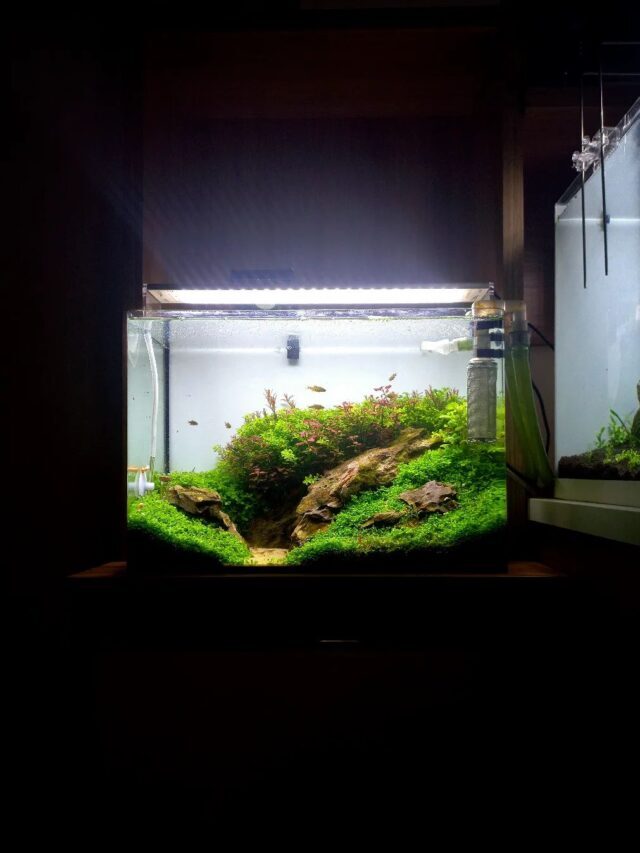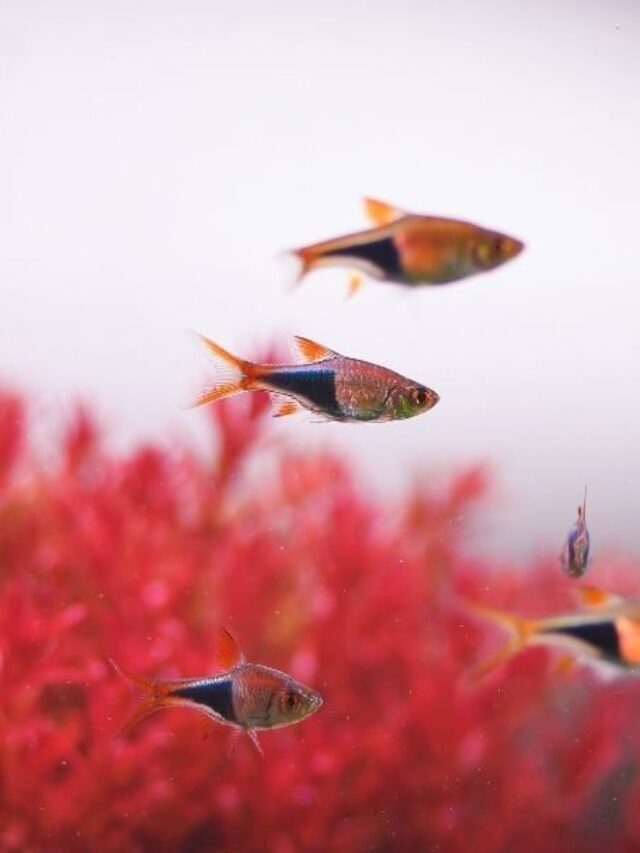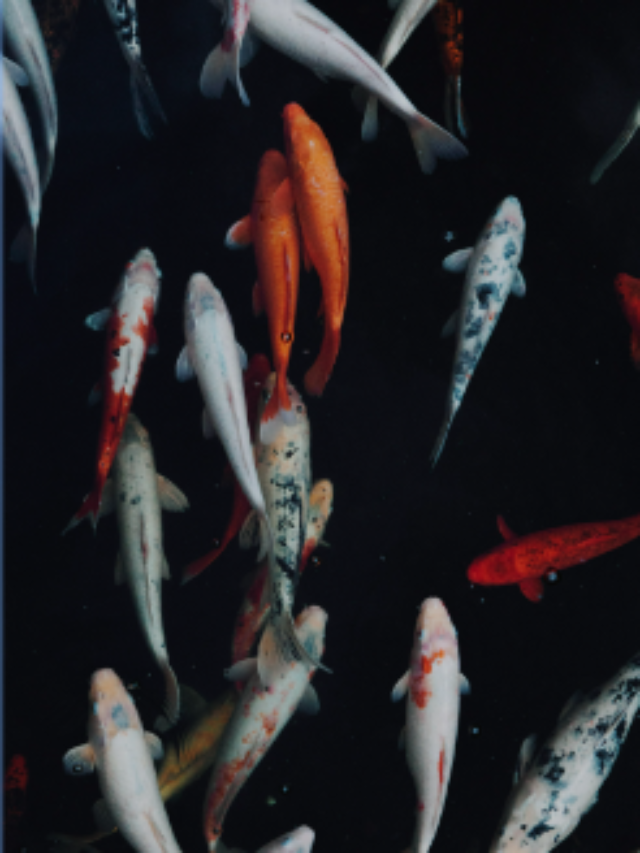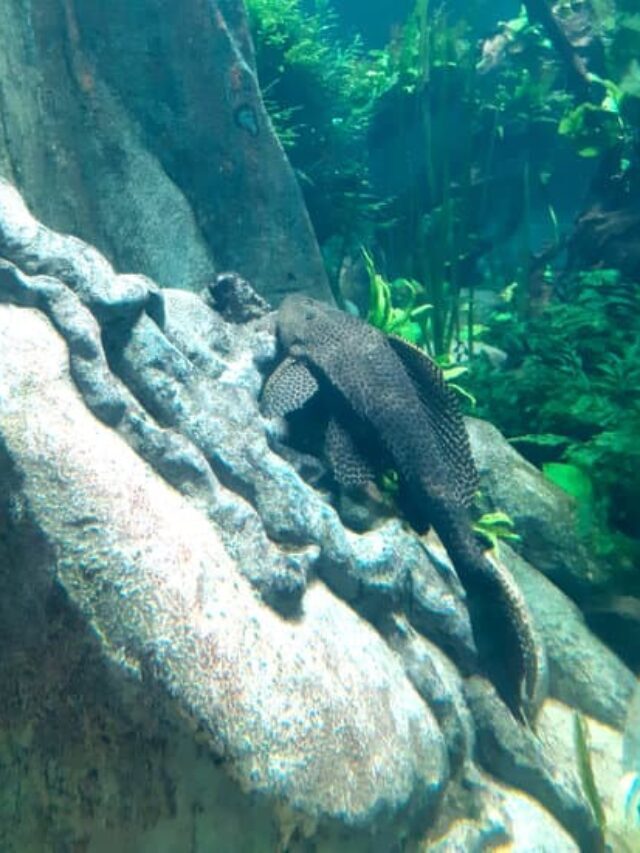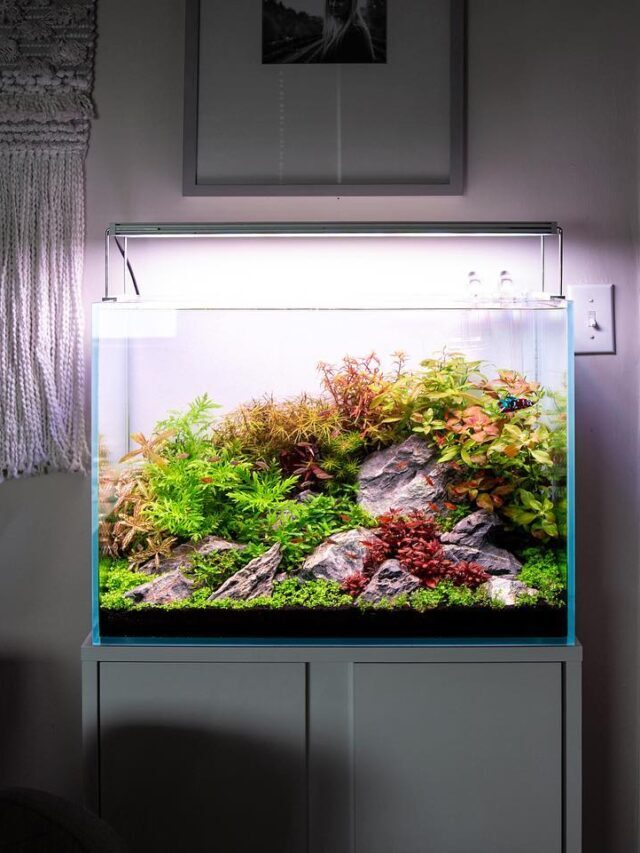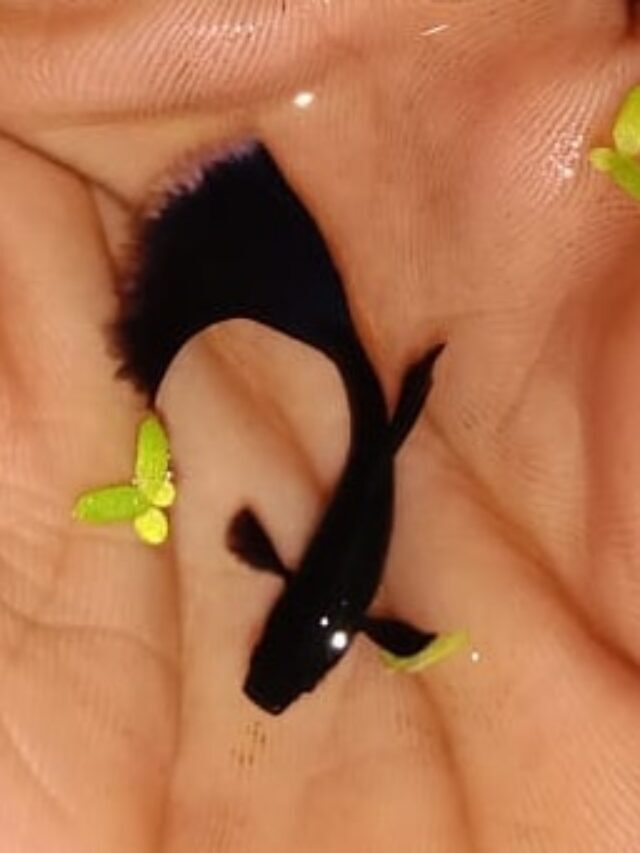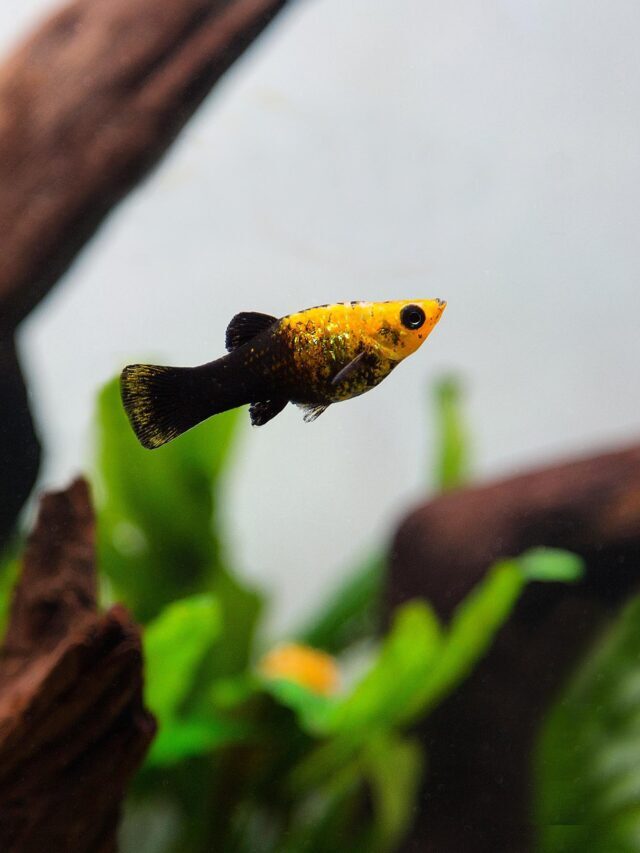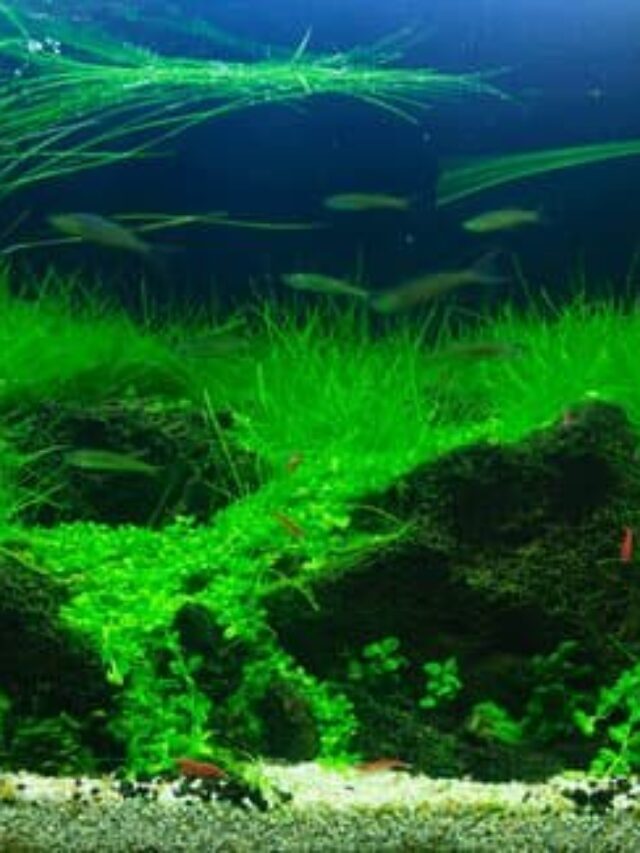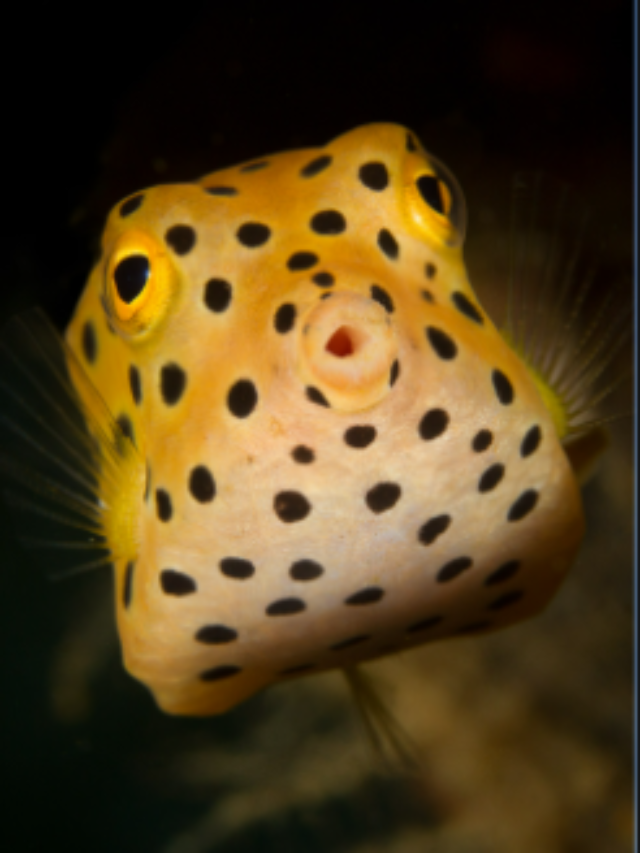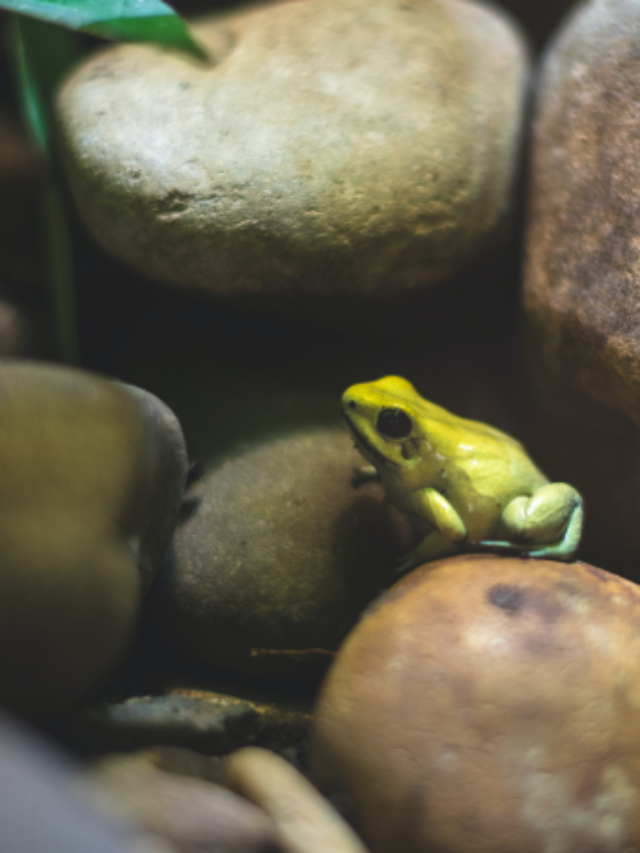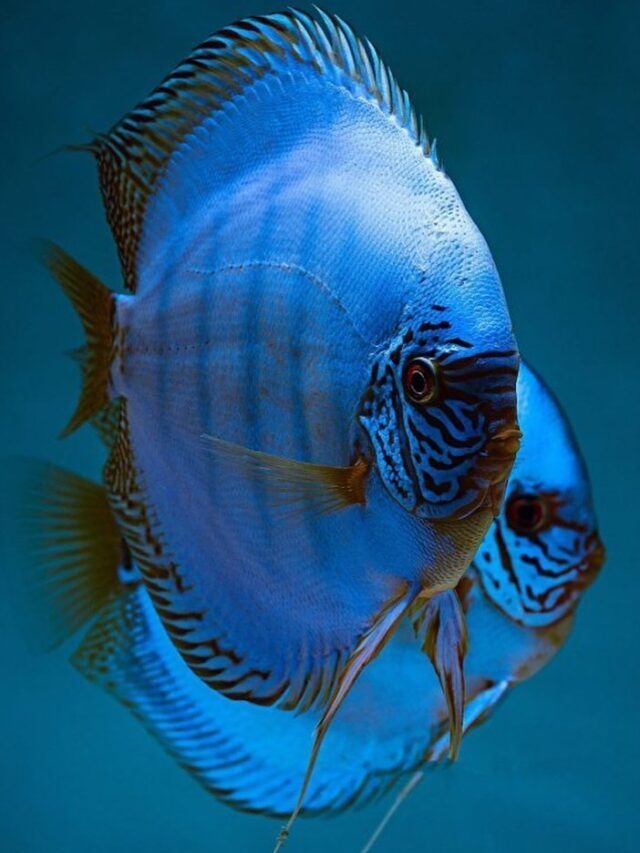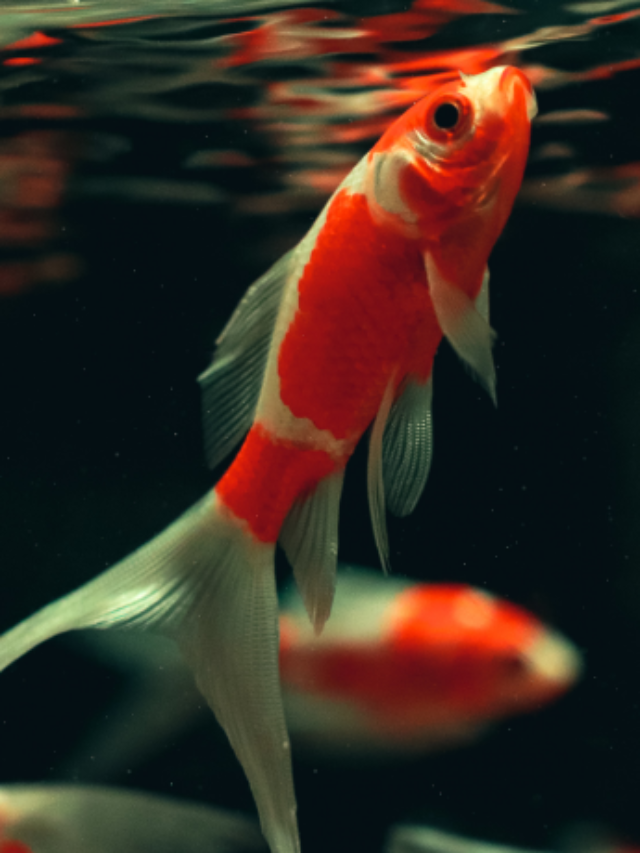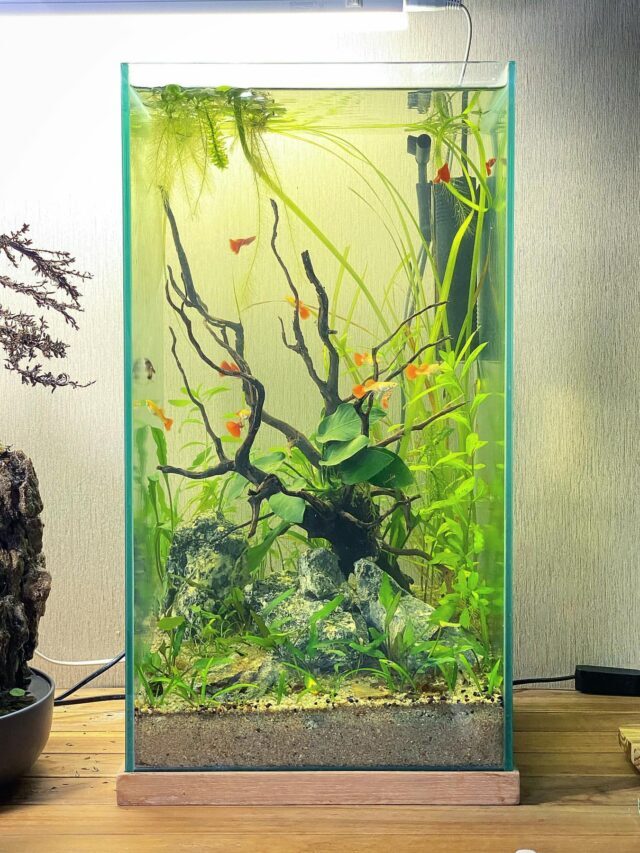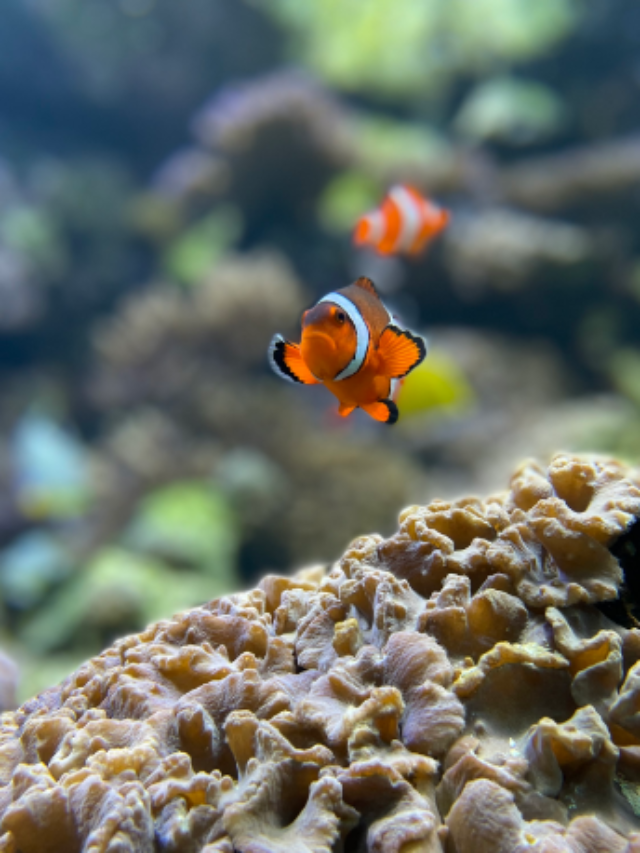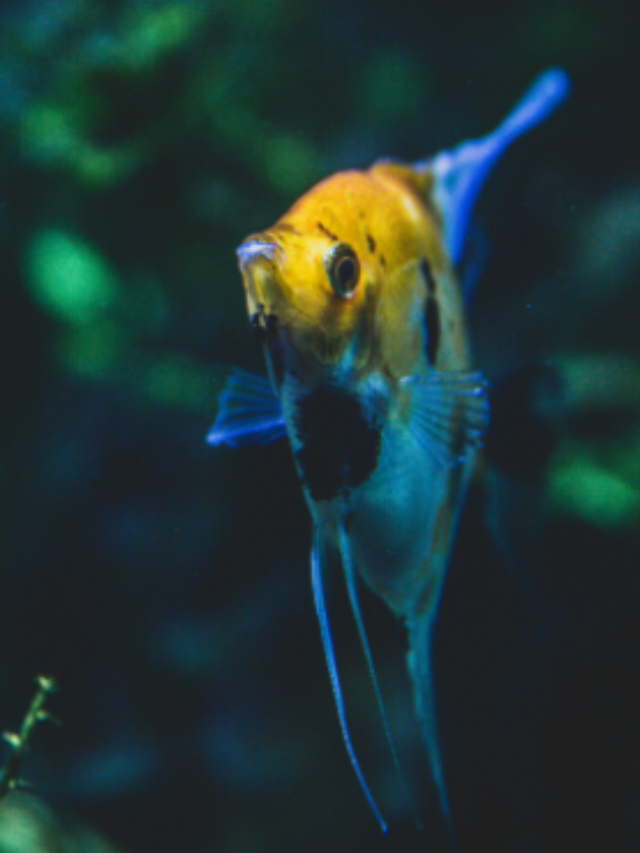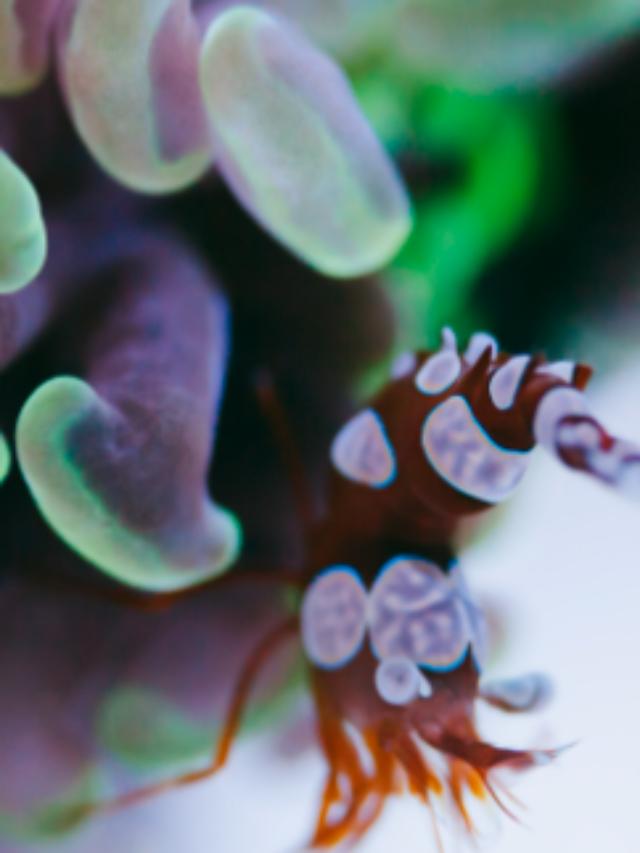Everything about Water Parameters of Freshwater Aquariums
Check Our Quick Stories
Most beginner aquarists face difficulties regarding the water parameters of their aquarium. Due to this, pet fish die off quickly and they give up their hobby. However, don’t worry, we are here to discuss everything about the water parameters of freshwater aquariums.
This article is all about different water parameters of different types of fish. So from here, you will get an idea of what type of water different types of fish prefer. So without wasting much time let’s dive deep into the topic.
Basic water parameters of freshwater aquarium
The water parameters of your aquarium are one of the most critical factors. You must know if you want to give your fish a healthy and beautiful life then quality water is a must. Now let’s get an idea about basic water parameters.
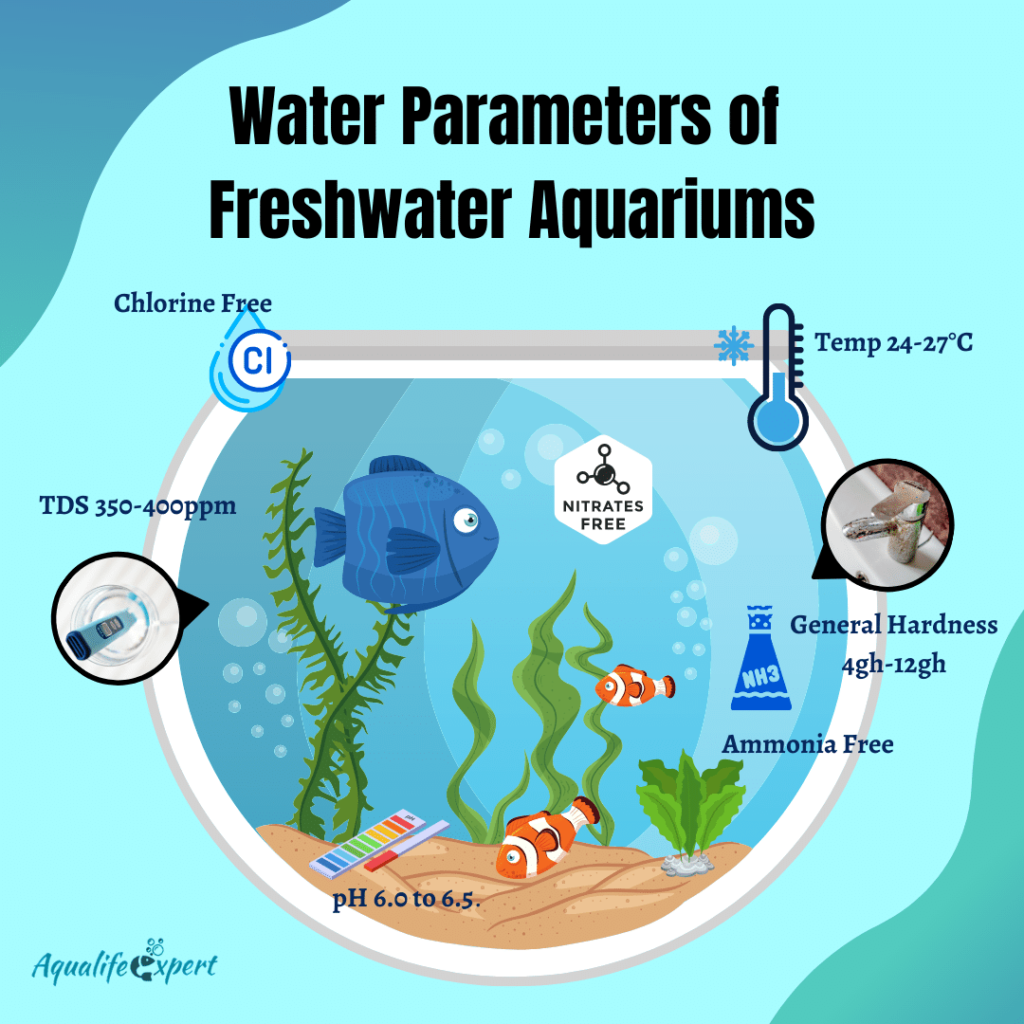
1)Temperature
Temperature is one of the main parameters that you must consider. Some fish can’t tolerate cold water. They belong mainly to tropical countries. So you need to identify the characteristics of the fish before putting them in the tank.
You must know that there is no hard and fast rule to maintain a certain temperature for a particular fish. Experts advise a certain temperature range for fish because a particular type of fish thrives in a certain temperature range.
However, if the temperature of the water goes up and down very slowly then fish can adapt to it well (not talking about extremes). Do not change water temperature anyhow to reach a certain temperature level.
For the basic type of pet fish or a community fish tank, 24 to 27°Celsius or 75 to 80°Fahrenheit range is suitable. However, the ideal temperature for fish is 26°Celsius or 78°Fahrenheit.
2) TDS
TDS is another parameter that you should check. Fish can survive at 350ppm to 400ppm. However, more than that can be a little difficult for fish. If TDS is 100ppm it is called soft water.
3) PH Level
You may have heard about pH level as a significant water parameter. Yes, it is correct because without the right pH level pet fish may not thrive. It is the main source of various disease outbreaks in aquariums.
In simple language, pH is a scale through which we can measure the acidity and alkalinity of water. The range of the pH scale is measured from 0-14. If the reading of the scale shows under 7, means the water is acidic, and more than 7 means the water is alkaline.
Now you must know that some fish prefer slightly acidic water and some prefer alkaline water. So the right pH level should be according to your pet fish selection for the aquarium.
However, the ideal pH level for a freshwater aquarium is from 6.0 to 6.5.
4) Ammonia level
Ammonia is the most toxic for pet fish and aquatic plants both in aquariums. Lots of beginners lose their pet fish just because of a sudden ammonia spike.
Ammonia comes mainly from the biowaste that fish release in aquariums. Now, this is transformed into comparatively less harmful nitrite by beneficial bacteria.
Now, for a new aquarium, it is impossible to grow beneficial bacteria so quickly. If you put fish in at that time, the fish will definitely die due to an ammonia spike.
The ideal level of ammonia should be 00 for a freshwater aquarium
5) Nitrite level
Nitrite is another harmful element for pet fish in aquariums. It comes from ammonia by beneficial bacteria. Despite being a less harmful element for fish, nitrite should not be more than 00 levels in a freshwater aquarium.
6) Nitrate
Nitrate is another element made from nitrite in aquariums by some beneficial bacteria. This whole process is called the nitrogen cycle.
Nitrate is less harmful than ammonia and nitrite. However, it should not be more than 50ppm in an aquarium.
7) Chlorine
Chlorine is an element that is ignored by aquarists very often. However, it should not be. It can kill your pet fish if not checked anyhow.
Most of us use drinking water for aquariums. Now you must know that drinking water contains chlorine. So you must remove chlorine from drinking water and then you should use it for aquariums.
Ideally, chlorine should not be more than 0.003 ppm in water for aquariums.
Read More:- Symptoms of Chlorine Poisoning in Fish Tank
There are some other parameters too which you need to consider. However, these aren’t too obvious to check before starting a tank. If you want to build a large tank with some expensive fish i.e. discus, expensive cichlids, oscars, and other aggressive fish, then you must check these water parameters also.
8) General Hardness 4gh to 12gh
9) Carbonate Hardness 4kh to 8kh
10)Magnesium 1280ppm to 1350ppm
11)Calcium 350ppm to 450ppm
Furthermore, some elements are required for pond water fish. These are phosphorus, potassium, etc. However, these elements are not required for our aquarium fish. So we are not considering these here.
There is some fish type for which you need to maintain a special type of water parameters. Let’s discuss it
Water parameters for Discus
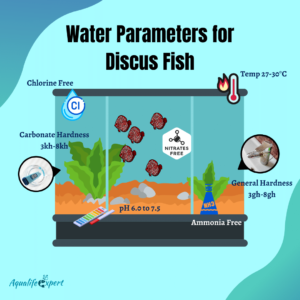
Discus fish are one of the most sophisticated freshwater cichlids. They need proper water and an environment to thrive. Otherwise, their color will fade and die off soo. So you should try to maintain the water parameters discussed below.
Discus Preference – Soft, acidic, and warm water
1)Temperature 82° and 86° F
2) PH level from 6.0 to 7.5.
3) Nitrate level 0-30ppm.
4) General hardness from 3gh to 8gh.
5) Carbonate hardness from 3kh to 8kh.
Water parameters for African Cichlids
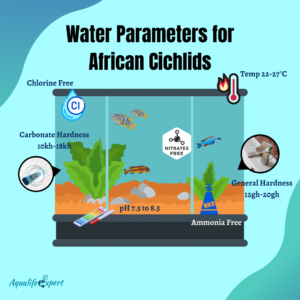
African cichlids come from mainly three lakes in Africa i.e Lake Malawi, Lake Tanganyika, and Lake Victoria. They are colorful & suitable for building a colorful cichlids-only tank.
African Cichlids Preference – Hard and warm water
1)Temperature 72° and 82°F.
2) PH level is from 7.5 to 8.5.
3) Nitrate level 0-0.25 ppm.
4) General Hardness 12gh to 20gh.
5) Carbonate Hardness 10kh to 18kh.
Water parameters for flowerhorn
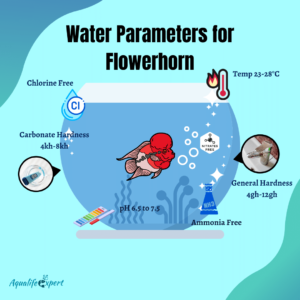
Flowerhorn is one of the most aggressive fish. They are expensive and should be kept alone in a large tank. They are famous for the bump on their head. So it is recommended to maintain certain water parameters for them.
Flowerhorn Preference – Moderate temperature with slightly acidic water
1)Temperature 75° and 84°F.
2) PH level is from 6.5 to 7.5.
3) Nitrate level 0-0.25 ppm.
4) General Hardness 4gh to 12gh
5) Carbonate Hardness 4kh to 8kh
Water parameters for goldfish
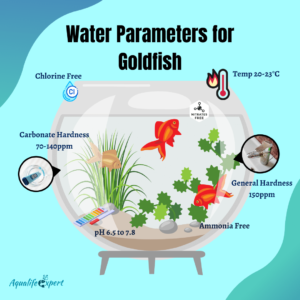
Goldfish is one of the most common pet fish in the world. Most fish keepers start their fish-keeping hobby with goldfish. They are easy to take care of. However, still, quality water is required because goldfish make the water dirty so often.
Goldfish Preference – Comparatively cold temperature with slightly alkaline water
1) Temperature 68° and 75°F.
2) PH level is from 6.5 to 7.8.
3) Nitrate level 0-0.50 ppm.
4) General Hardness 150ppm
5) Carbonate Hardness 70-140ppm
How do you turn hard water into soft water?
Hard water can’t be completely converted to soft water. Boil the water for a short while and cool it down and put the water in the aquarium. But after 48 hours the water will return to its previous state.
However, you can turn soft water into hard water. You can turn soft water into hard water by adding Epsom salt to the water. But it is better not to do it. Before doing this, be sure to know what type of water your fish prefers. Also know that Epsom salt is used to protect fish from internal parasites and bad digestion.
Read More:- Is EPSOM Salt Good For Aquarium? BEST Medication For Fish
Final Thoughts
This article has discussed almost everything about the water parameters of freshwater aquariums. So we hope you have understood this topic.
You must know a pet fish needs two elements to thrive primarily. These are quality water and quality food. Now without quality food fish can live (can’t thrive) however, without quality water they can’t live. That’s why water parameters are significant in fishkeeping.
Best of luck and happy fish-keeping

